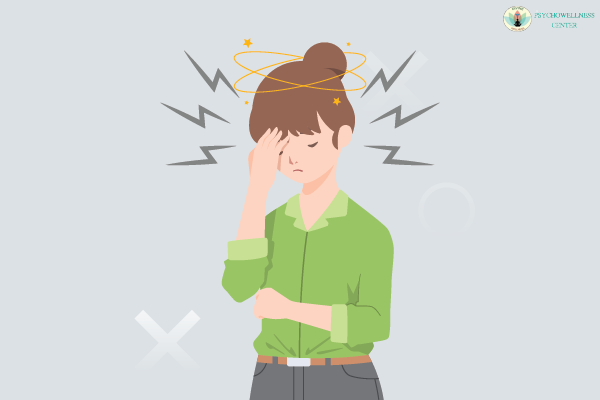Conversion disorder, also known as functional neurological symptom disorder, is a condition in which an individual experiences physical symptoms that cannot be explained by a medical condition or a physical cause. Instead, these symptoms are believed to be a manifestation of an underlying psychological issue or emotional distress.
Symptoms of conversion disorder can include a wide range of physical complaints, such as weakness, paralysis, blindness, deafness, seizures, tremors, and difficulty swallowing. These symptoms may appear suddenly or gradually over time, and they can often be triggered by a stressful or traumatic event. Conversion disorder is most commonly diagnosed in adolescents and young adults, and it is more common in women than men.
The exact causes of conversion disorder are not well understood, but researchers believe that it may be related to a disruption in the way the brain processes and integrates sensory information. This disruption may be triggered by a traumatic event or by chronic stress. Individuals who have experienced physical or emotional trauma, such as abuse or neglect, are at higher risk of developing conversion disorder.
Diagnosing conversion disorder can be challenging, as the symptoms can be similar to those of other medical conditions. A diagnosis of conversion disorder is typically made after a thorough medical evaluation has ruled out any physical causes for the symptoms. In certain instances, more testing could be required to validate the diagnosis.
Treatment for conversion disorder typically involves a combination of psychological and physical therapies. Psychotherapy, such as Therapists in delhi, can help individuals identify and address underlying emotional issues that may be contributing to their symptoms. Physical therapy, Occupational therapy, and speech therapy can help individuals regain function and control over their physical symptoms. Seek therapy from the Best psychologist delhi , Counseling psychologist or Online counselor.
It is important to note that conversion disorder is a real and valid medical condition, despite its psychological origins. Individuals with conversion disorder are not “faking” their symptoms, and they require appropriate and compassionate care. It is also important to address any underlying psychological issues, as these can have a significant impact on the individual’s overall health and well-being.
Caregivers play an important role in the treatment and management of conversion disorder. Here are some ways that caregivers can help someone with conversion disorder:
-
Educate yourself about the condition: It’s important to understand the nature of conversion disorder and how it can affect the individual. Educate yourself about the common symptoms, triggers, and treatment options so that you can offer the best support possible.
-
Be supportive and empathetic: Individuals with conversion disorder may feel frustrated, scared, or embarrassed about their symptoms. Caregivers should be supportive and empathetic, acknowledging the individual’s experience and offering reassurance and understanding.
-
Encourage treatment: Treatment for conversion disorder typically involves a combination of psychological and physical therapies. Caregivers can help by encouraging the individual to seek out appropriate treatment and offering support during therapy sessions. Take good treatment and medication from the Best psychiatrist in India or seek support by searching for the Best psychologist near me.
-
Help with daily tasks: Depending on the individual’s symptoms, they may need assistance with daily tasks such as getting dressed, preparing meals, or driving. Caregivers can provide practical support and help the individual maintain as much independence as possible.
-
Create a calming environment: Stress and anxiety can exacerbate symptoms of conversion disorder. Caregivers can help by creating a calming and supportive environment, reducing stressors in the home, and encouraging relaxation techniques such as deep breathing or mindfulness.
-
Encourage healthy habits: A healthy lifestyle can help manage symptoms of conversion disorder. Caregivers can encourage healthy habits such as regular exercise, a balanced diet, and adequate sleep.
-
Foster social connections: Social support is an important factor in managing conversion disorder. Caregivers can help the individual maintain social connections and participate in activities that bring joy and fulfillment.
It’s important to remember that caregivers also need support and self-care. Taking care of someone with a conversion disorder can be challenging, so it’s important to prioritize your own well-being and seek support when needed. With proper care and support, individuals with conversion disorder can manage their symptoms and improve their quality of life.
In conclusion, conversion disorder is a complex and often misunderstood condition that can be difficult to diagnose and treat. It is important for healthcare professionals to be aware of the signs and symptoms of conversion disorder and to approach the condition with empathy and understanding. With appropriate care, individuals with conversion disorder can learn to manage their symptoms and improve their quality of life.
You may also make an appointment at the Psychowellness Centre with well-known, licensed psychologists for mental health therapy. The center is spread over Delhi NCR, Janakpuri, Dwarka, NOIDA, and Faridabad.
Contribution: Dr (Prof) R K Suri, Clinical Psychologist, life coach & mentor TalktoAngel & Ms Aditi Bhardwaj, Psychologist.

